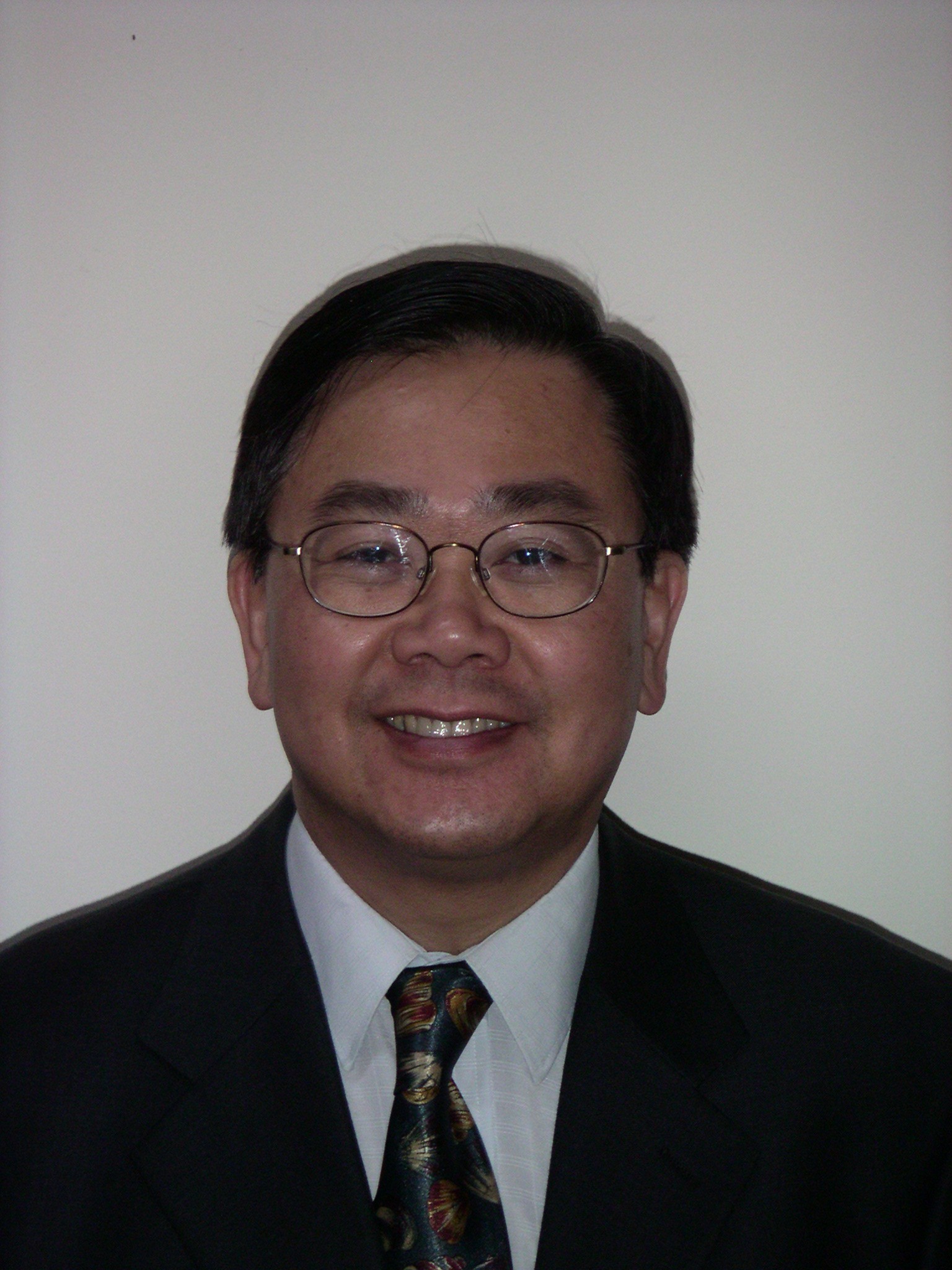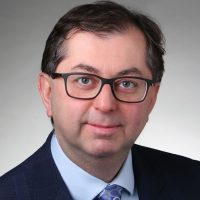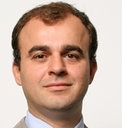21st ACM MSWiM 2018
Keynote Speakers
In addition to scientific papers, the MSWiM 2018 program includes distinguished Keynote Speakers.
Title: Content-centric Edge Caching for 5G Mobile Internet and Beyond
Victor C.M. Leung
Professor at University of British Columbia
Vancouver, BC, Canada
Abstract: Mobile data traffic is increasing explosively in recent years due to tremendous growth in demands from mobile users for multimedia contents. However, current mobile networking technologies, including network architectures and data transmission techniques, cannot support the anticipated traffic load without degrading mobile user's QoS/QoE. Much ongoing research efforts are targeted at developing technologies for 5G mobile Internets and beyond to overcome these limitations. Content-centric edge caching has recently emerged as a promising technique to satisfy the demands of popular multimedia contents that are requested repeatedly by multiple mobile users over a period of time. This talk will motivate and explore the design principles and goals of content-centric edge caching. We shall present a generalized architectural framework as a basis of differentiating different edge caching designs. We shall present several trace-driven case studies to illustrate the optimization of some design alternatives. We shall conclude the talk with a discussion of research opportunities and challenges in content-centric edge caching.
Short Bio: Victor C. M. Leung is a Professor and the holder of the TELUS Mobility Research Chair in Advanced Telecommunications Engineering in the Department of Electrical and Computer Engineering, the University of British Columbia. His research interests are in the areas of wireless networks and mobile systems. He has co-authored more than 1100 technical papers in international journals and conference proceedings, and edited several books in these areas. Several of his papers have been selected for best paper awards.
Dr. Leung is a registered professional engineer in the Province of British Columbia, Canada. He is a Fellow of IEEE, the Royal Society of Canada, the Engineering Institute of Canada, and the Canadian Academy of Engineering. He was a Distinguished Lecturer of the IEEE Communications Society. He has served on the editorial boards of the IEEE Journal on Selected Areas in Communications, the IEEE Transactions on Computers, Wireless Communications, and Vehicular Technology, the IEEE Wireless Communications Letters, and currently serves on the editorial boards of the IEEE Transactions on Green Communications and Networking, IEEE Transactions on Cloud Computing, IEEE Access, and several other journals. He has guest-edited many journal special issues, and served on the technical program committees and organizing committees of numerous international conferences. Dr. Leung is a winner of the IEEE Vancouver Section Centennial Award, the 2011 UBC Killam Research Prize, the 2017 Canadian Award for Telecommunications Research, and the 2018 IEEE ComSoc TGCC Distinguished Technical Achievement Recognition Award. He co-authored papers that won the 2017 IEEE ComSoc Fred W. Ellersick Prize, the 2017 IEEE Systems Journal Best Paper Award, and the 2018 IEEE ComSoc CSIM Best Journal Paper Award.
Title: INTEGRATED TERRESTRIAL/NON-TERRESTRIAL 6G NETWORKS FOR UBIQUITOUS 3D SUPER-CONNECTIVITY
Halim Yanikomeroglu
Professor at Carleton University
Ottawa, Canada
Abstract: Since the development of the 4G LTE standards around 2010, the research communities both in academia and industry have been brainstorming to predict the use cases and scenarios of 2020s, to determine the corresponding technical requirements, and to develop the enabling technologies, protocols, and network architectures towards the next-generation (5G) wireless standardization. This exploratory phase is winding down as the 5G standards are currently being developed with a scheduled completion date of late-2019; the 5G wireless networks are expected to be deployed globally throughout 2020s. As such, it is time to reinitiate a similar brainstorming endeavour followed by the technical groundwork towards the subsequent generation (6G) wireless networks of 2030s.
One reasonable starting point in this new 6G discussion is to reflect on the possible shortcomings of the 5G networks to-be-deployed. 5G promises to provide connectivity for a broad range of use-cases in a variety of vertical industries; after all, this rich set of scenarios is indeed what distinguishes 5G from the previous four generations. Many of the envisioned 5G use-cases require challenging target values for one or more of the key QoS elements, such as high rate, high reliability, low latency, and high energy efficiency; we refer to the presence of such demanding links as the super-connectivity.
However, the very fundamental principles of digital and wireless communications reveal that the provision of ubiquitous super-connectivity in the global scale - i.e., beyond indoors, dense downtown or campus-type areas - is infeasible with the legacy terrestrial network architecture as this would require prohibitively expensive gross over-provisioning. The problem will only exacerbate with even more demanding 6G use-cases such as UAVs requiring connectivity (ex: delivery drones), thus the 3D super-connectivity.
In this talk, we will present a 5-layer vertical architecture composed of fully integrated terrestrial and non-terrestrial layers for 6G networks of 2030s:In the absence of a clear technology roadmap for the 2030s, the talk has, to a certain extent, an exploratory view point to stimulate further thinking and creativity. We are certainly at the dawn of a new era in wireless research and innovation; the next twenty years will be very interesting.
- Terrestrial HetNets with macro-, micro-, and pico-BSs
- Flying-BSs (aerial-/UAV-/drone-BSs); altitude: up to several 100 m
- High Altitude Platforms (HAPs) (floating-BSs); altitude: 20 km
- Very Low Earth Orbit (VLEO) satellites; altitude: 200-1,000 km
- Geostationary Orbit (GEO) satellites; altitude: 35,786 km
Short Bio: was born in Giresun, Turkey, in 1968. He received the B.Sc. degree in electrical and electronics engineering from the Middle East Technical University, Ankara, Turkey, in 1990, and the M.A.Sc. degree in electrical engineering (now ECE) and the Ph.D. degree in electrical and computer engineering from the University of Toronto, Canada, in 1992 and 1998, respectively. During 1993-1994, he was with the R&D Group of Marconi Kominikasyon A.S., Ankara, Turkey. Since 1998 he has been with the Department of Systems and Computer Engineering at Carleton University, Ottawa, Canada, where he is now a Full Professor. His research interests cover many aspects of wireless technologies with a special emphasis on cellular networks. Dr. Yanikomeroglu has supervised 18 PhD and 28 MASc theses (all completed); several of his PhD students received various medals. He has coauthored 350+ peer-reviewed research papers including about 120 in the IEEE journals; these publications have received more than 10,000 citations. He has been one of the most frequent tutorial presenters in the leading international IEEE conferences (29 times). He has had extensive collaboration with large-scale (such as Huawei, Samsung, Blackberry, Nortel), medium-scale (such as Telus, DragonWave), and small- scale (such as Mapsted) companies as well as the government labs (such as Communications Research Centre of Canada). During 2012-2016, he led one of the largest academic-industrial collaborative research project on pre-standards 5G wireless research, sponsored by the Ontario Research Fund – Research Excellence (ORF-RE) program. Dr. Yanikomeroglu's collaborative research resulted in 24 granted patents (plus about 15 applied). Dr. Yanikomeroglu is a Fellow of the IEEE with the citation "for contributions to wireless access architectures in cellular networks". He is a Distinguished Lecturer for the IEEE Communications Society and a Distinguished Speaker for the IEEE Vehicular Technology Society. He has been involved in the organization of the IEEE Wireless Communications and Networking Conference (WCNC) from its inception in 1998 in various capacities including serving as a Steering Committee member for a decade and the Technical Program Chair/Co-Chair of WCNC 2004 (Atlanta), WCNC 2008 (Las Vegas), and WCNC 2014 (Istanbul). He was the General Co- Chair of the IEEE 72 nd Vehicular Technology Conference (VTC 2010-Fall) held in Ottawa, and the General Chair of the IEEE 86 th Vehicular Technology Conference (VTC 2017-Fall) held in Toronto. He has served in the editorial boards of the IEEE Transactions on Communications, IEEE Transactions on Wireless Communications, and IEEE Communications Surveys & Tutorials. He was the Chair of one of the largest technical committees in IEEE, Technical Committee on Personal Communications (now called Wireless Communications Technical Committee and has 1,700+ members). Dr. Yanikomeroglu is a recipient of the IEEE Ottawa Section Outstanding Educator Award in 2014, Carleton University Faculty Graduate Mentoring Award in 2010, the Carleton University Graduate Students Association Excellence Award in Graduate Teaching in 2010, and the Carleton University Research Achievement Award in 2009 and 2018. Dr. Yanikomeroglu spent the 2011-2012 academic year at TOBB U. of Economics and Technology, Ankara, Turkey, as a Visiting Professor. He is a registered Professional Engineer in the province of Ontario, Canada.
Title:Machine Learning as a powerful tool to enjoy future intelligent wireless networks
Ajib Wessam
Professor at UQAM
Montreal, Canada
Abstract: Wireless communication is irreversibly changing the life of human beings. Today, wireless networks are extremely complex systems and they are evolving towards more complex ones because of the increasing diversity and heterogeneity of applications, devices, quality requirements and wireless standards. At the same time, resources used by wireless communications are either naturally limited e.g., time, spectrum, or need to be optimally exploited e.g., power, computation, infrastructure. Hence, traditional resource allocation approaches that are based on optimization techniques and heuristic algorithms start to show their limitations. Those approaches are often centrally-managed, reactive, and not adaptive. They also require a huge amount of control data exchange. Hence, there is a need for new approaches to provide adaptive, proactive and self-organized networking solutions. Thanks to the availability of increasingly powerful computation capabilities and the availability of huge amount of data that can be efficiently exploited in wireless networks, we envision the employment of machine learning techniques in order to get intelligent, resource-efficient and data-driven future wireless networks. In this talk, we will discuss how wireless network designers and operators can employ and adopt advanced machine learning techniques for adding predictive and adaptive intelligence to the system. We will deeply discuss the state of the art of using machine learning techniques in wireless networks and then we will identify some interesting issues for new research avenues.
Short Bio: Wessam Ajib (M'5, S'15) received an Engineer diploma from INPG at Grenoble, France in Physical Instruments, in 1996, a Master and Ph.D. degrees in computer networks from Ecole Nationale Superieure des Telecommunication, Paris, in 1997 and in 2000. He had been an architect and radio network designer at Nortel Networks, Ottawa, ON, Canada between October 2000 and June 2004. He had conducted many projects on the third generation of wireless cellular networks. He followed a post-doc fellowship at Electrical Engineering department of Ecole Polytechnique de Montréal, QC, Canada in 2004-2005. Since June 2005, he has been with the Department of Computer Sciences, Universite du Quebec at Montreal, QC, Canada, where he is presently a full Professor. His research interests include wireless communications and networks, multiple access design, resource allocation, signal processing and traffic scheduling. He is the author or co-author of many papers in international journals and conference proceedings in these areas. He received several Best paper awards and participated in the organization of several international conferences.


